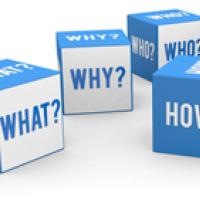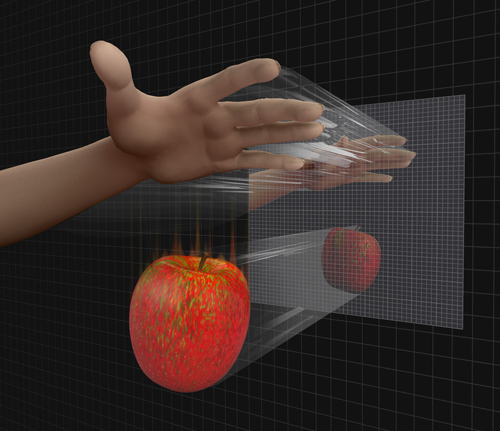
Explaining weirdness with weirdness
Quantum mechanics is famously strange. It says that tiny little particles behave in a way we never, ever see bigger objects behave. The theory can't be reconciled with the classical physics of Isaac Newton most of us learn about at school. Yet, it performs so well that physicists have no choice but to accept it.

Can parallel universes explain quantum phenomena?
But now, a team of researchers has found a way of potentially explaining quantum phenomena only using classical physics. Unfortunately though (or perhaps fortunately if you prefer to live in a strange world) they haven't been able to do away with the weirdness all together. Their theory supposes that we live in a sea of multiple universes that can interact with each other.
The general idea is that when particles in our world behave in strange quantum ways, it's because they are feeling the influence of other particles that live in near-parallel universes. All of the universes are completely classical: if you allow for the influences between universes, you don't need quantum mechanics to explain the goings-on in any of them. (In particular, the parallel universes are not the many worlds proposed by Hugh Everrett in the 1950s.)
An example is a phenomenon called quantum tunnelling: sometimes small physical particles perform feats that require levels of energy the particle doesn't actually have. This happens, for example, in a certain type of radioactive decay (known as alpha-decay), where the decay process requires more energy than the decaying atom has available (see Play the quantum lottery for more information). The particle encounters an energy barrier, but somehow manages to "tunnel" through it. Quantum mechanics explains this fact by holding that, unlike large objects and contrary to classical laws and intuition, small particles can acquire energy from out of nowhere for very brief moments of time.
The new theory, which is being developed by Howard Wiseman and Michael Hall of Griffith University, Australia, and Dirk André Deckert of the Ludwig-Maximilians-University in Munich, Germany, doesn't involve such a breach of the laws of classical physics. It postulates that, for the particle approaching the energy barrier in our world, there are particles in parallel worlds that approach the barrier from the other side. There is a repulsive interaction between our particle and its other-world partners, which pushes our particle along faster than average, giving it the energy to surmount the barrier, while the partner particles are slowed down correspondingly. There is nothing quantum happening here: all of it can be described using classical laws and the existence of a repulsive force.

Quantum mechanics suggests that the world is inherently random.
Another strange prediction of quantum mechanics is that it's completely impossible to predict the outcome of an experiment. When you are dealing with larger objects, such as pool balls on a pool table, you can in principle use the laws of physics (Newton's) to predict exactly where a ball will go when it has been given a push. In quantum physics, no such certainty is possible: for example, no equation will ever predict for certain if and when a radioactive atom is going to decay. All you can ever calculate is the probability that it will do so within a given period of time.
The new theory has an answer to this phenomenon too. The uncertainty, so the theory goes, is only due to our ignorance as to which of the parallel worlds we actually inhabit. It's a bit like waiting for the bus: if we can't predict when the next one will arrive that's only because we don't know where it is at the moment and what the traffic is like down the road, and not because the behaviour of buses is inherently randomly (except for London buses, that is). Replacing the apparent randomness from the laws of physics by a deterministic theory is something that would elicit a sigh of relief from many who, in accord with Albert Einstein, feel uncomfortable about the idea that the world should, at bottom, be governed by chance (although there already are other deterministic interpretations of quantum mechanics).
Back in 2014 the researchers already calculated that their theory can explain away many other weirdnesses of quantum mechanics too. They are now embarking on a research program to investigate their idea further, and to come up with ways of testing it experimentally.
Those experimental tests will be crucial because, unsurprisingly, not everyone is convinced. It's always nice to be able to do away with something strange and counter-intuitive in a theory, but in this case it comes at the price of interacting parallel universes — a price that many will find too steep.
You can read more about the theory in this excellent article on the FQXi Community website, or listen to their podcast.
For an introduction to quantum mechanics, see Schrödinger's equation — what is it?, and for more on quantum physics read any of these articles.
Comments
Anonymous
I am not sure the explanation in terms of (mutual) repulsion is at all clear: perhaps that section needs to be rewritten.
Philip Bradfield
kindly old pedant
Anonymous
Great article!
I've just been reading the book "Quantum Mechanics - the Theoretical Minimum" - not for the faint hearted, but it's good to actually understand of the basic mathematical ideas behind QM. I love the fact that 100 years after QM was discovered it still holds so many mysteries as to what is happening on the particle level and what actually constitutes reality. It'll be interesting to see if classical mechanics can really explain QM. Perhaps we will end up with a situation like with that of non-Euclidean geometry where we can construct different (but isomorphic) mathematically consistent versions of the geometry of space - and so no experiment will ever be able to tell which version we live in....